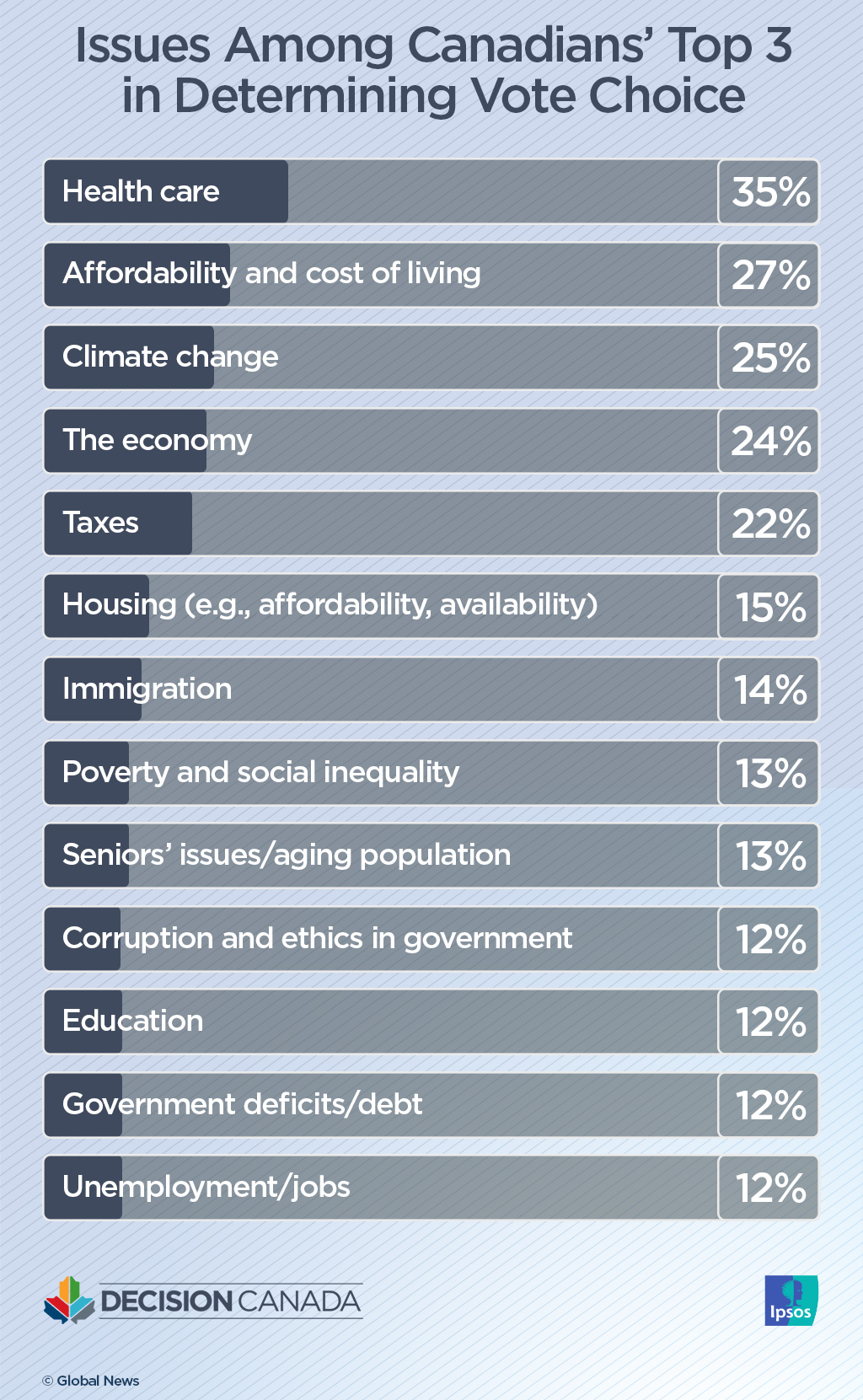There are few issues that induce hypocrisy in our fellow Canadians more than the environment and its intellectual subsidiary, climate change. No human being with any sense of decency wants the water and air we share to be fouled by the effects of industry and other human-made endeavours.

But here’s the question: how much do we want to sacrifice to clean up after ourselves? How much do we want government to involve the people’s business in this environmental business?
The polls are clear. Climate change is one of the top five issues that Canadians care about in this campaign. It’s up there with the economy, affordability, health care and taxes. So which parties reflect our environmental attitudes?
Elizabeth May’s Green Party of Canada is the choice many Canadians will make if they want to cast a vote for a dramatic overhaul of laws that relate to curbing the appetites of the energy industry. The Greens are never shy to use the B-word — “ban.”
They would ban fracking, the hydraulic fracturing of the earth to separate what can be turned into fuel from the rest of the earthly extraction. The Greens would also ban new pipelines and new drilling for fossil fuels.
And the most controversial energy project in Canada, the Trans Mountain Pipeline, would simply be cancelled, zeroing out the Canadian taxpayers’ investment of more than $4 billion. The Green vision of Canada is one in which, within 10 years, Canadians are only using electric vehicles.
Every other political offering in Canada deals with the same issues, but none is willing to go as far as the Greens.
DECISION CANADA: Promises Trudeau, Scheer, Singh, May and Blanchet have made
At the other extreme from May’s party is Maxime Bernier. His People’s Party of Canada is 100 per cent open for business for all things energy, including pipelines, new drilling for fossil fuels and gas-powered vehicles. Bernier is among those Canadians who think man-made climate change is just a swindle that enables others to make money on fear and panic.
And if the climate is changing and human activity is involved, Bernier says it’s hardly a crisis that requires new laws, regulations and sanctions.
“We must not fear the fact that the climate is changing, but there’s no emergency crisis,” he told Global News on Sept. 8.
Canada’s governing party, the Liberals, want to reduce emissions over the years using a combination of regulation and taxes. Carbon taxes are designed to weaken demand for fossil fuels, but the jury is out on whether they actually do that. Almost everyone agrees they would work if the carbon taxes were significantly more onerous — but that would be political dynamite.
WATCH: Party leaders describe how they will tackle climate change
As it is, Conservatives are using the carbon levy — which Liberals call “a price on pollution” — to drive their own anti-tax message. Ipsos pollster Darrell Bricker says the Conservative message has been successful in connecting with Canadians living in the suburbs. They do the most commuting so they meet the carbon tax strategy every time they fill up with gas.
“Voters are looking at it — particularly if you’re a Conservative voter — as an attempt to get more money out of your pocket as opposed to actually doing anything meaningful about climate change,” Bricker told Global News in May 2018.
READ MORE: 7 in 10 Ontarians think carbon taxes are just a tax grab, Ipsos poll says (May 14, 2018)
The Conservatives talk loudly about removing carbon taxes if they gain power this October. Andrew Scheer’s party recently rolled out an idea for a green homes tax credit that would give Canadians up to $2,850 for every year that they made innovations to their homes to make them more energy-efficient. There would also be tax incentives to corporations that pursue green strategies.
The NDP’s climate action strategy is to the left of the Liberals and the Conservatives. They’ve suggested cutting greenhouse gas emissions by half in the next 10 years. Only the Green party has targets that bold. And like the Greens, the NDP also talks about cancelling the Trans Mountain Pipeline. In rhetorical terms, the NDP, like the Greens, never hesitates to deploy the term “climate emergency.”
In this election, if Canadians truly put their money and votes where their mouths are, the Greens and the NDP will do very well. But whether the Conservatives take over government this fall or the Liberals retain power, one reason for that will be that while Canadians take environmental concerns seriously, climate change just doesn’t get the urgency of other issues like affordability in uncertain economic times.
Charles Adler hosts Charles Adler Tonight on Global News Radio and is a columnist for Global News.









Comments